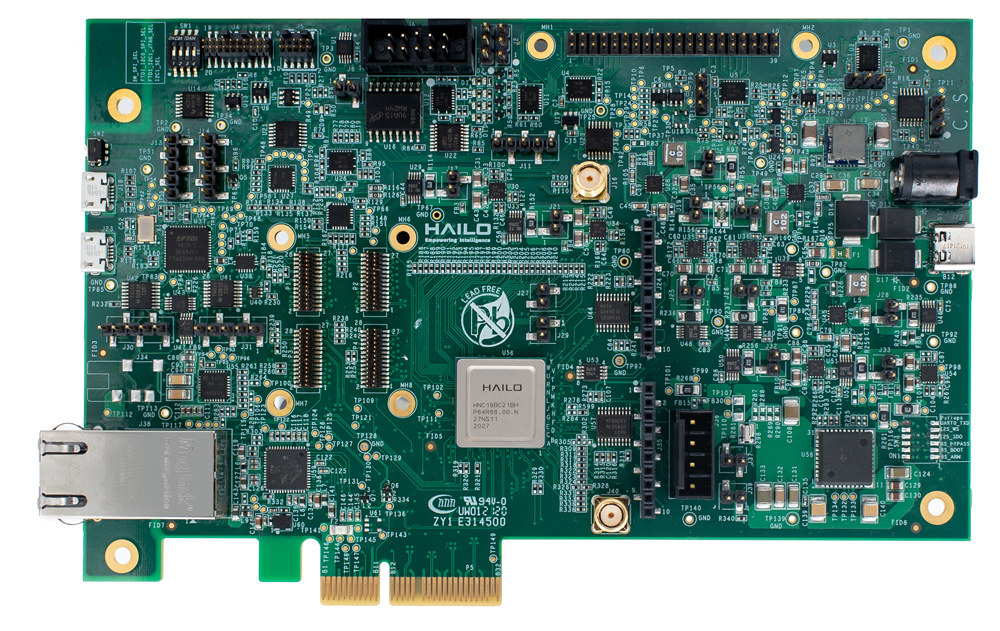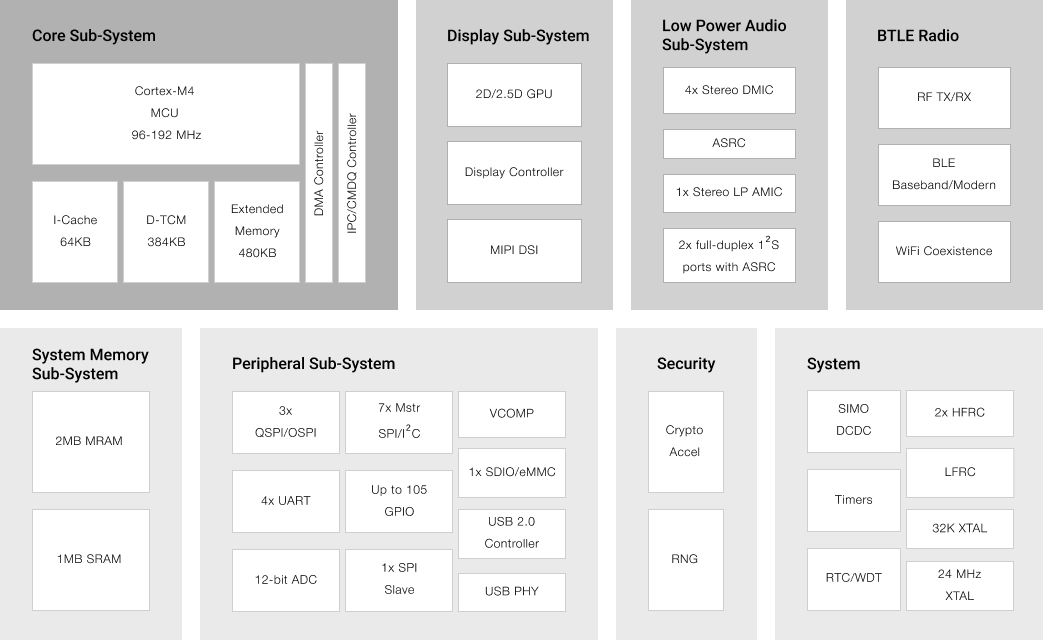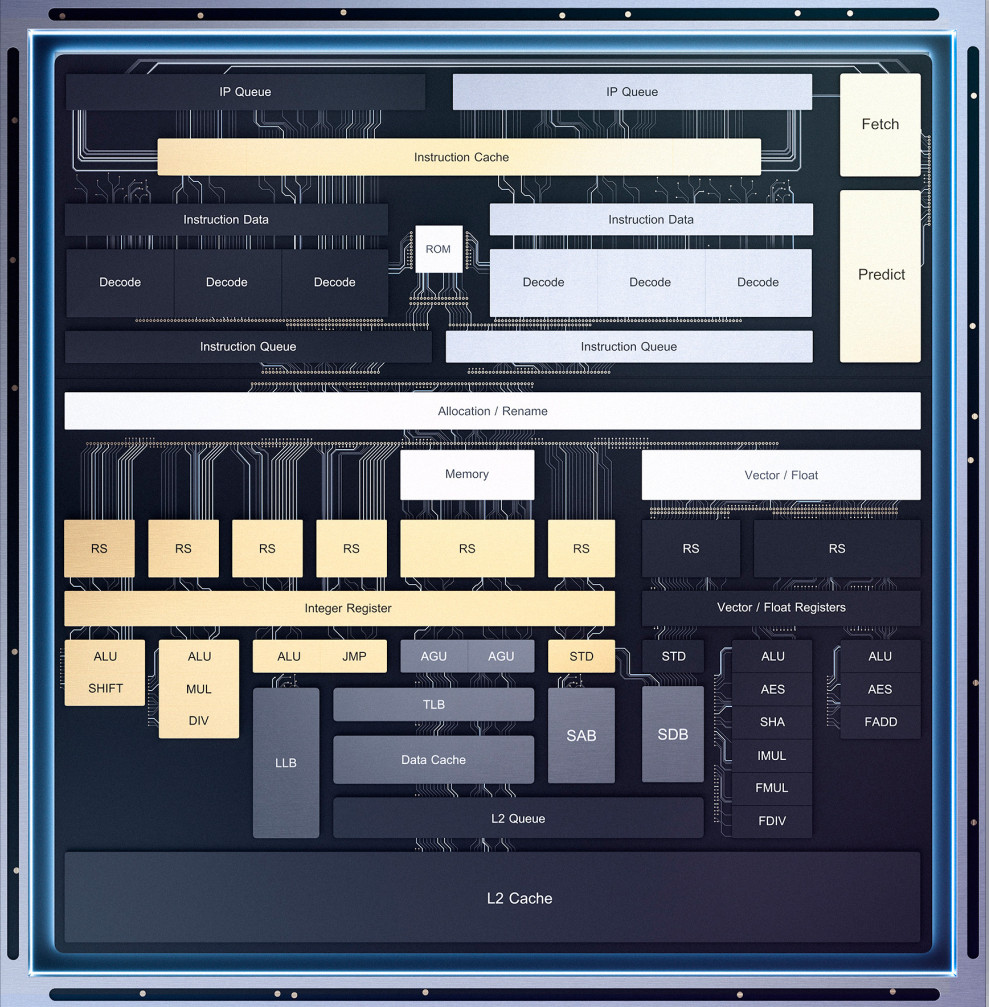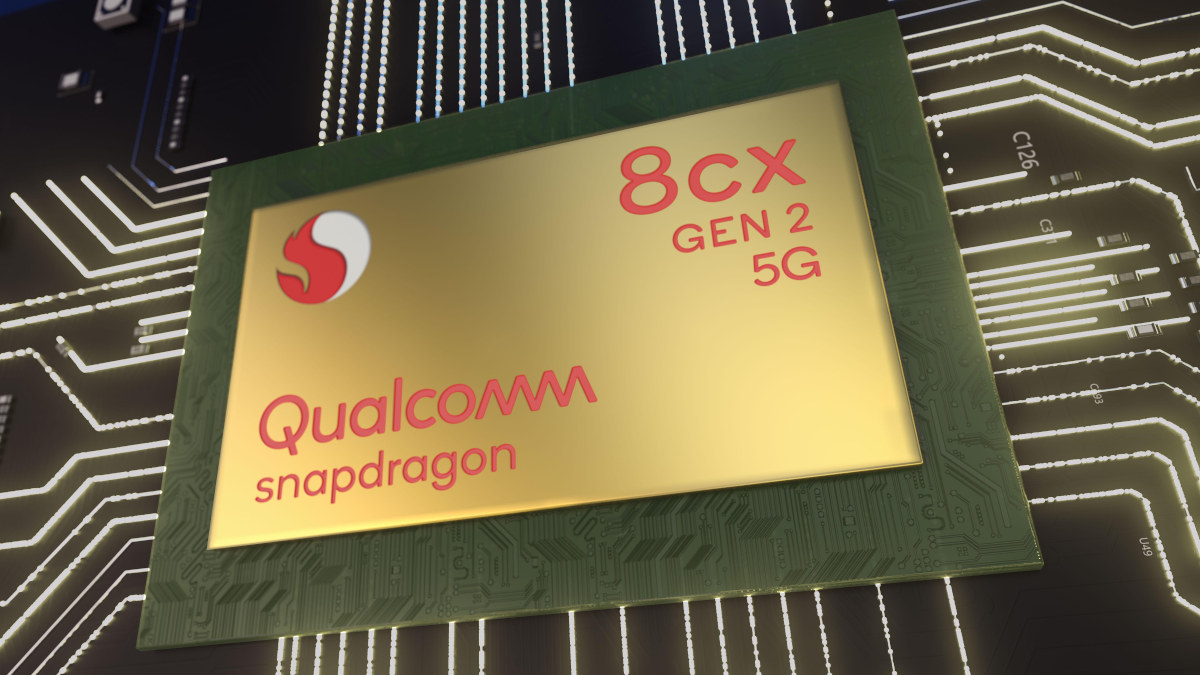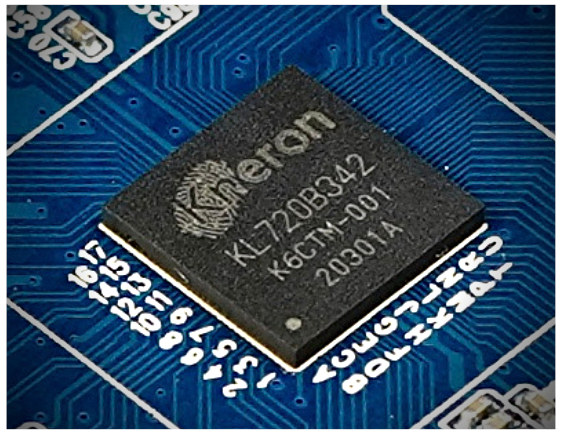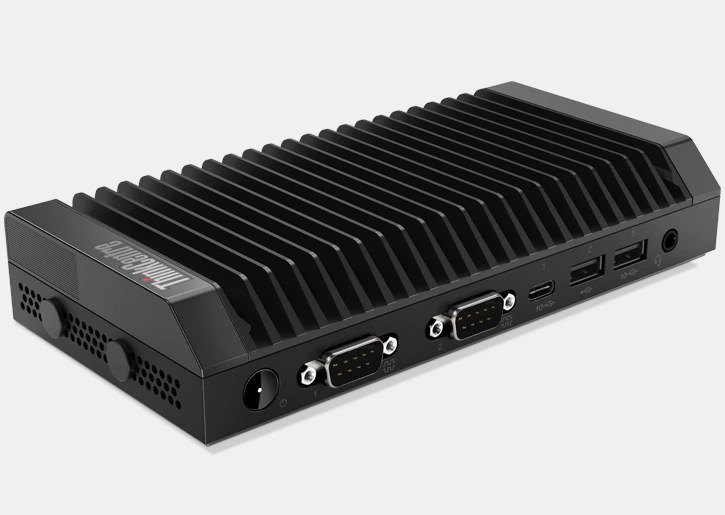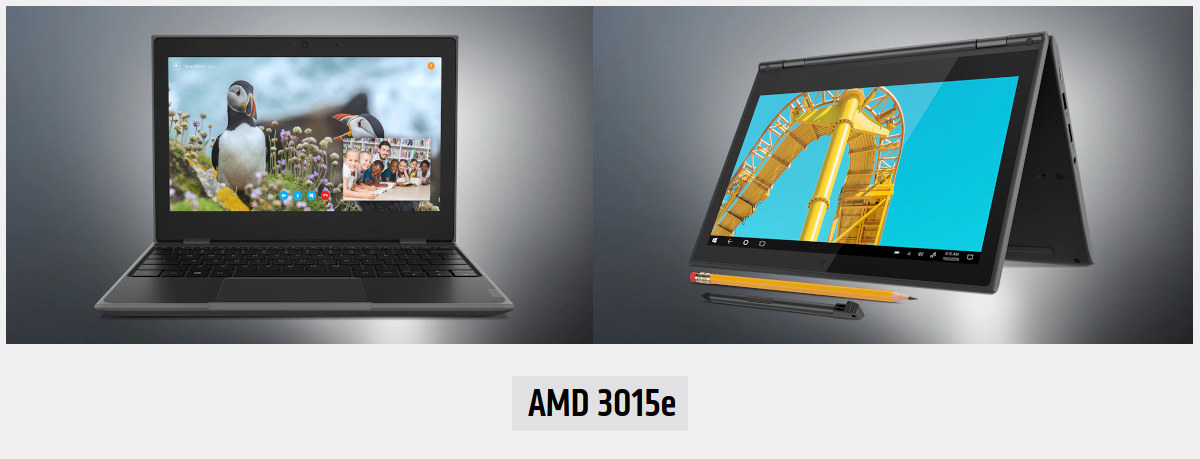Last week we wrote about Hailo-8 M.2 card delivering up to 26 TOPS of AI performance, and comparing well against Google Edge TPU and Intel Movidius Myriad X both in terms of footprint, performance, and efficiency. I’ve since then had a conference call with Liran Bar, VP of Business Development for Hailo, where we had time to discuss more about Hailo’s AI solutions, and how to interpret & understand AI benchmarks that may be misleading in many instances. Hailo-8 Architecture In the first post, we noted the chip managed to get the extra performance and efficiency thanks to a “proprietary novel structure-driven Data Flow architecture instead of the usual Von Neumann architecture”. But that’s a bit abstract, so Liran told me one of the key reasons for the performance improvement is that RAM is self-contained without the need for external DRAM like other solutions. This decreases latency a lot and […]
3µA/MHz Ambiq Apollo 4 MCU Targets Battery-powered IoT Devices with Voice Processing
Ambiq Micro is using sub-threshold voltages under 0.5V to offer ultra-low-power Arm microcontrollers. In 2015, the company launch the Apollo Cortex-M4F MCU with 30µA/MHz power consumption in active mode, which was followed in 2016 by Apollo 2 in consuming just 10µA/MHz, and Apollo 3 (Blue) dropped power consumption to as low as 6µA/MHz against using a Cortex-M4F @ 48 MHz in active mode. The fourth generation of ultra-low-power Apollo microcontroller has now been announced with Apollo 4 and Apollo 4 Blue microcontrollers – the latter adding Bluetooth – halving the power consumption of Apollo 3 at just 3µA/MHz, or ten times less than the original ultra-low-power MCU from the company. Apollo 4 (Blue) specifications and key features: MCU Core – Arm Cortex-M4F core up to 192 MHz (TurboSPOT) with FPU, Memory Protection Unit (MPU), and Secure Boot GPU – 2D/2.5D graphics accelerator with full alpha blending, texture and frame buffer […]
Z-Wave Long Range (LR) Promises Up to 4 Times the Range, 10-year Battery Life
The new Z-Wave Alliance Technical and Certifications workgroup, part of the Z-Wave Alliance, has announced the new Z-Wave Long Range (Z-Wave LR) specifications offering up to four times the range, support for ten times larger network, and 10-year coin cell battery life while keeping backward compatibility and interoperability Z-Wave LR will support up to 2000 nodes on a single smart home network making it suitable for indoor and outdoor smart home applications in multi-dwelling units, hotels, and hospitals, and removing the need for repeaters. The Z-Wave LR specification will be managed and certified under the Z-Wave Plus V2 certification program that currently mandates the inclusion of the enhanced S2 security framework as well as SmartStart plug-and-play setup feature for the consumer smart home. More details may be found on the press release and some of the sessions that were presented at Works With by Silicon Labs Virtual Conference on September […]
Intel Jasper Lake Celeron & Pentium Processors Lineup Leaked
Intel has already announced Intel Tiger Lake processors designed for long battery-life, ultra-thin laptops, but which will also be found in industrial applications. I was also told Intel Elkhart Lake processors would be announced on September 24th. Elkhart Lake processors are based on the new Atom Tremont architecture, and so far, I thought they would be the successors to the affordable Gemini Lake processors. But FanlessTech just leaked the Jasper Lake lineup, also based on Tremont and whose SKUs closely match what we would expect from Gemini Lake successors. At this point, there are three desktop SKUs with 10W TDP, and three mobile SKUs with 6W TDP. All processors come with 4MB L2 cache and unspecified Intel UHD graphics. They’ll be manufactured with Intel 10nm process. What’s a bit unusual in the table above is that Intel normally uses “J” letter for 10W desktop processors, and “N” for mobile processors, […]
Qualcomm Snapdragon 8cx Gen 2 5G Compute Platform Offers 50% Greater Performance, Longer Battery Life
Qualcomm Snapdragon 8cx 5G processor was launched last year for always-on always-connected PC and delivers a similar performance of 15W Intel Comet Lake processors with much lower power consumption enabling 20+ hours battery life. The company has now an update with Snapdragon 8cx Gen 2 5G Compute Platform with 50% greater system-wide performance and battery life versus “competing solutions”. More on that later. Snapdragon 8cx Gen 2 5G specifications with the differences against the first generation in bold or stricken-through: CPU – 8x Qualcomm Kryo 495 64-bit cores 7nm Process Technology Visual Subsystem – Qualcomm Adreno GPU with DX12 support Memory – LPDDR4x, 8 Channels up to 2133 MHz Storage – NVMe SSD, UFS3.0 Qualcomm Artificial Intelligence Engine Qualcomm Hexagon 690 DSP (was 685) Qualcomm Sensing Hub technology Qualcomm All-Ways Aware technology Display Maximum On-Device Display Support: 4K Ultra HD Dual 4K external displays support over DP-MST Audio Qualcomm Aqstic […]
Kneron KL720 Arm Cortex-M4 AI SoC Delivers 1.5 TOPS at 1.2 Watts
We first came across Kneron AI processors last year, when we covered AAEON M.2 & mPCIe AI accelerator cards powered by Kneron KL520 dual-core Cortex-M4 processor and delivering 0.3 TOP AI acceleration performance at 0.5 Watt. The company has now introduced a more powerful processor with Kneron KL720 single Arm Cortex-M4 AI processor delivering up to 1.5 TOPS at 1.2 Watts, or 0.9 TOPS for 1 Watt. The company does not provide much other information in terms of specifications, but Kneron KL720 is said to be two to four times more power-efficient than competitors at a lower cost and is best suited for high-end IP cameras, Smart TVs, AI glasses & headsets, as well as AIoT Gateways. The processor can process 4K images, full HD videos, and 3D sensing data for facial recognition and gesture control for gaming, shopping kiosks, etc.. Besides computer vision, the chip can also handle natural […]
ThinkCentre M75n IoT Nano Desktop Features a 6W AMD Athlon Silver 3050e Processor
Earlier today, we wrote about AMD 3015e dual-core/quad-thread Zen processor with 6W TDP found in some upcoming education laptops from Lenovo. We also noted that two other recent 6W AMD processors had been introduced by the company AMD 3020e and AMD Athlon Silver 3050e. When looking for AMD 3020e I got ACER ASPIRE A314-22-A8ST 14″ laptop with 4GB RAM and 256GB SSD listed for 9,590 Baht ($309 inc. 7% VAT) – but out of stock – on several Thai websites, but after switching to a US VPN all product reference disappeared, except for Lenovo Ideapad 3 soon getting an AMD 3020e model. None of the laptops are available now, but at least that means AMD does not only target the education market with its 6W SKUs. But when I searched for AMD Athlon Silver 3050e platforms, I realized Lenovo made an announcement last June about ThinkCentre M75n IoT Nano Desktop […]
6W AMD 3015e Dual-Core “Zen” Processor Shows Up in Lenovo Laptops
While AMD has done a good job with their Ryzen processors based on Zen architecture, the company did not provide alternatives to low-cost, low-power Intel Gemini Lake processors with the closest equivalent being the 15W AMD Athlon 3000-series processors. But this may be about to change, as Lenovo has now unveiled two new education laptops, namely Lenovo 100e 2nd gen and Lenovo 300e 2nd gen, powered by a previously-unannounced 6W AMD 3015e processor, and expected to become available in September 2020 for $219 and up. AMD 3015e key features and specifications: CPU – 2x cores, 4x threads @ 1.2 GHz / 2.3 GHz (Boost) GPU – Vega 3 Graphics @ 600 MHz Cache – 1MB L2 cache, 4MB L3 cache Memory I/F – Single-channel DDR4 up to 1,600 MHz Video – HDMI and DisplayPort Peripheral Interfaces – PCIe 3.0 TDP – 6W Process – 14nm Based on the product page, […]


